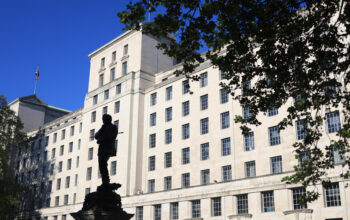
In the past, Mr. Maduro has controlled the vote by banning many opposition figures from political participation, jailing others and co-opting many political parties. He holds elections to project a veneer of legitimacy.
Speaking on state television about the Mexico talks this week, Mr. Maduro said he wanted to make it clear: “Nobody is going to impose anything on us, not today, not tomorrow, not ever.”
The United States still recognizes Mr. Guaidó as the country’s president, though his global influence has fallen significantly after a bid to support him failed to oust Mr. Maduro.
Mr. Monaldi, the energy expert, said the Chevron deal was not merely symbolic — within two years, the company could be pumping more than 200,000 barrels a day in Venezuela, adding to the approximately 765,000 barrels pumped daily today, according to Argus, an industry monitor.
For the United States and for the opposition, the talks are a gamble.
On the one hand, simply getting Mr. Maduro to negotiate is a victory, and the $3 billion humanitarian deal could be a major step toward alleviating suffering.
On the other hand, said Mr. Gunson, the aid and the Chevron deal could improve economic conditions, lifting Mr. Maduro’s popularity.
Still, he hasn’t given an inch on the political front.
“That’s why there’s so much nail biting for the people in the administration who are pushing this policy,” said Mr. Gunson. “Because if Maduro essentially says, ‘Thank you very much,’ and doesn’t offer any concessions, then they’re going to look pretty foolish.”
Isayen Herrera contributed reporting from Caracas, Venezuela, and Clifford Krauss from Houston.

